Delta Air Lines Financial Performance Analysis
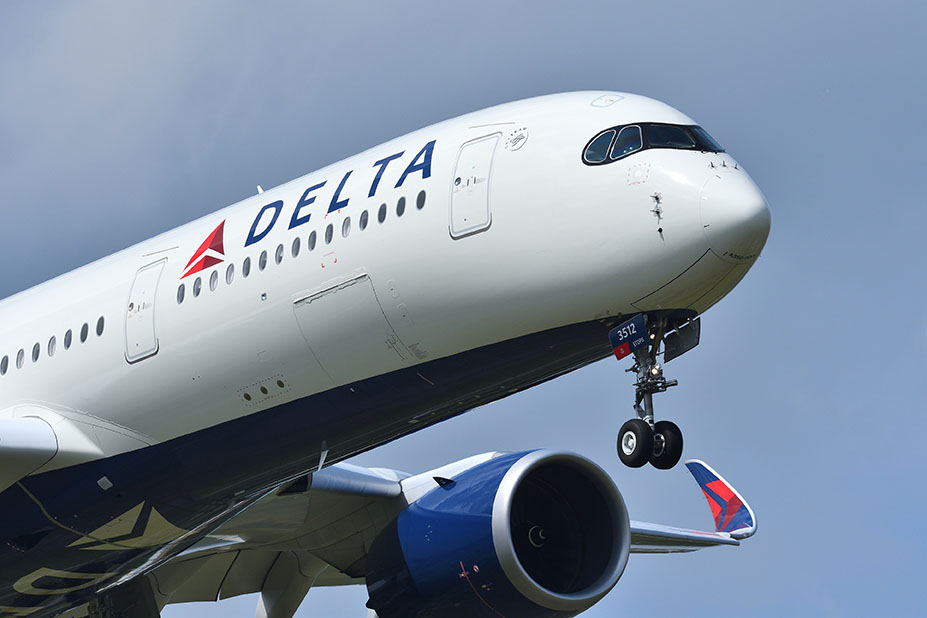
- Earnings Per Share (EPS) of $2.10, surpassing the estimated $2.01.
- Revenue of $15.51 billion fell short of the expected $16.18 billion.
- Delta's stock surged by over 10% in premarket trading after reinstating its profit outlook for 2025.
Delta Air Lines, listed on the NYSE:DAL, is a major American airline known for its extensive domestic and international flight network. The company competes with other major airlines like American Airlines and United Airlines. On July 10, 2025, Delta reported its earnings, revealing an EPS of $2.10, surpassing the estimated $2.01. However, its revenue of $15.51 billion fell short of the expected $16.18 billion.
Despite the revenue miss, Delta's stock surged by over 10% in premarket trading, reaching a four-month high. This increase was driven by the company's decision to reinstate its profit outlook for 2025, as highlighted by CNBC's Phil LeBeau. The reinstatement of the full-year guidance boosted investor confidence, contributing to the positive movement in the stock price.
Delta's adjusted EPS of $2.10 exceeded analysts' expectations of $2.08, while revenue remained stable at $16.65 billion compared to the previous year. Analysts had anticipated revenue of $16.41 billion. In the previous quarter, Delta had forecasted a revenue change between a 2% decrease and a 2% increase, with adjusted EPS ranging from $1.70 to $2.30.
Looking ahead, Delta projects third-quarter revenue to be flat or increase by up to 4%, with adjusted EPS between $1.25 and $1.75. Analysts predict revenue to remain approximately flat at $15.69 billion, with adjusted EPS of $1.36. Delta's full-year projections expect adjusted EPS between $5.25 and $6.25, with the midpoint significantly exceeding the analysts' consensus of $5.31.
Delta's financial metrics provide insight into its market valuation. The P/E ratio is approximately 8.92, indicating the market's valuation of its earnings. The price-to-sales ratio stands at about 0.53, suggesting investors pay 53 cents for every dollar of sales. The debt-to-equity ratio is approximately 1.44, showing the proportion of debt used to finance the company's assets relative to equity.
| Symbol | Price | %chg |
|---|---|---|
| LTM.SN | 21.43 | -0.33 |
| GIAA.JK | 108 | 5.56 |
| 003495.KS | 22900 | 0 |
| 003490.KS | 22600 | 1.99 |
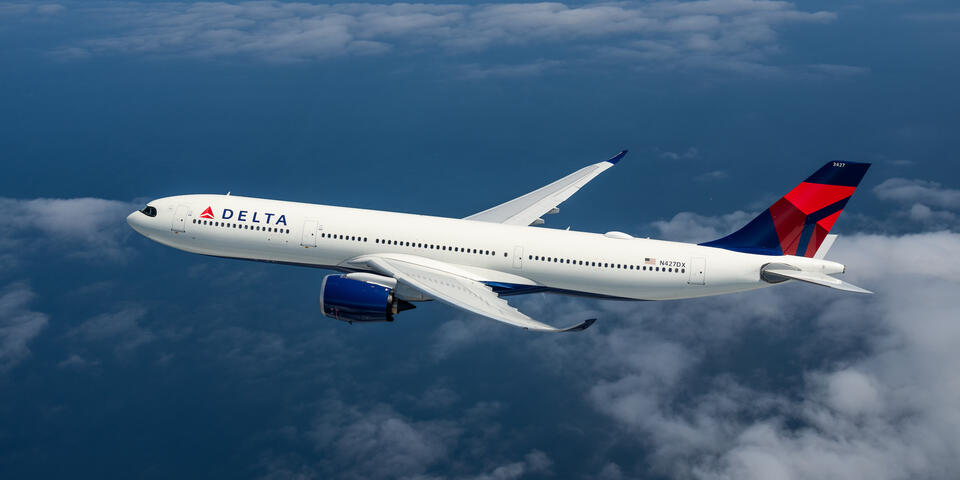
Delta Air Lines (NYSE:DAL) Sees Price Target Increase by Bernstein
- Bernstein sets a new price target for Delta Air Lines (NYSE:DAL) at $74, significantly higher than its current trading price.
- Delta reports strong Q3 sales of $16.67 billion, a 6% increase year-over-year, making it the largest and most profitable domestic airline.
- The airline's stock surged up to 8% during the trading session, reflecting investor confidence in its financial performance.
Delta Air Lines (NYSE:DAL) is a major player in the airline industry, known for its extensive domestic and international flight network. As one of the largest U.S. airlines, Delta competes with United Airlines and American Airlines. Recently, Bernstein set a new price target for Delta at $74, a significant increase from its current trading price of $59.57.
Delta's strong third-quarter results have bolstered its position as a leading investment choice. The airline reported Q3 sales of $16.67 billion, a 6% increase from the previous year, surpassing estimates of $15.79 billion. This robust performance has helped Delta become the largest domestic airline by revenue and the most profitable, outpacing its competitors.
The airline's net income for the quarter was $1.5 billion, translating to $1.71 per share. This impressive financial performance has led to a surge in Delta's stock, which increased by as much as 8% during the trading session. The current stock price of $59.57 reflects a 4.29% increase, or $2.45, from previous levels.
Delta's stock has traded between a low of $58.90 and a high of $62.27 today. Over the past year, the stock has reached a high of $69.98 and a low of $34.74. With a market capitalization of approximately $38.90 billion, Delta remains a significant player in the airline industry. The trading volume for the day is 27.83 million shares, indicating strong investor interest.
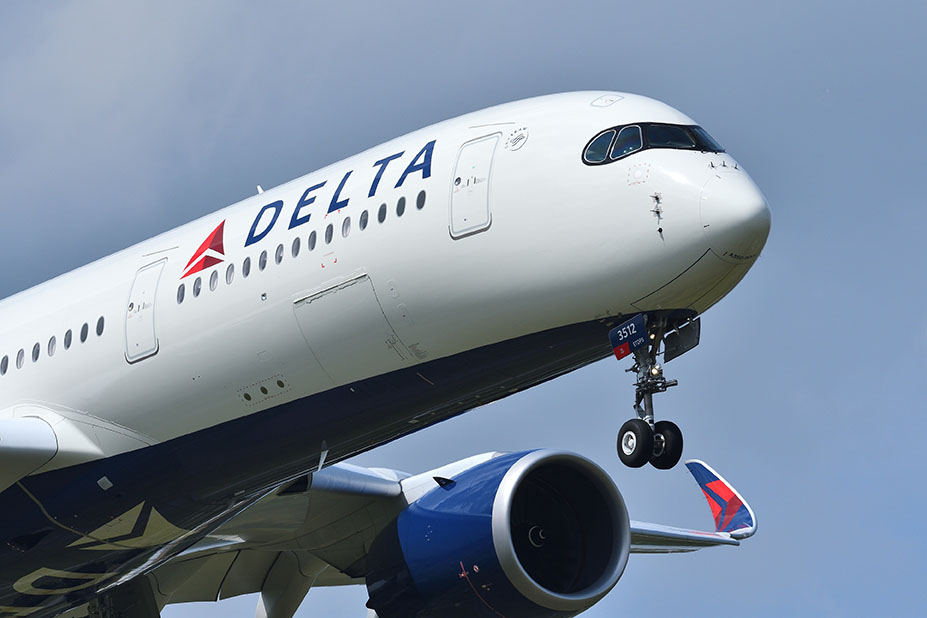
Delta Air Lines' Earnings Surpass Expectations
- Earnings Per Share (EPS) of $1.71 exceeded the estimated EPS of $1.52, showcasing Delta's strong financial performance.
- Despite a revenue miss, Delta's stock price surged nearly 7% due to better-than-expected third-quarter results and a positive outlook for the travel sector.
- Delta's valuation metrics, including a price-to-earnings (P/E) ratio of approximately 6.18 and an earnings yield of about 16.19%, indicate a strong position and potential undervaluation.
Delta Air Lines (NYSE:DAL) is a major American airline, known for its extensive domestic and international flight network. It competes with other major airlines like American Airlines and United Airlines. On October 9, 2025, Delta reported an earnings per share (EPS) of $1.71, exceeding the estimated EPS of $1.52. However, its revenue of $15.2 billion fell short of the expected $15.96 billion.
Despite the revenue miss, Delta's stock price surged nearly 7% on the same day, as highlighted by the company's announcement of better-than-expected third-quarter results. The adjusted revenue of $15.2 billion for the September quarter marked a 4.1% increase from the previous year, surpassing analyst expectations of $15.08 billion. This growth reflects a strong recovery in the travel sector.
Delta's improved earnings performance, with an EPS of $1.71 compared to $1.50 in the same quarter last year, has bolstered investor confidence. The company has also raised its full-year earnings guidance, further enhancing its stock's appeal. This positive outlook is supported by a surge in travel demand, leading to record revenue and benefiting Delta and its industry peers.
Financially, Delta's valuation metrics indicate a strong position. With a price-to-earnings (P/E) ratio of approximately 6.18, the stock is considered undervalued relative to its earnings. The price-to-sales ratio of about 0.63 suggests investors are paying 63 cents for every dollar of sales, while the enterprise value to sales ratio of 0.82 reflects the company's total valuation relative to its sales.
Delta's financial health is further demonstrated by its earnings yield of about 16.19%, indicating a solid return on investment for shareholders. The debt-to-equity ratio of approximately 0.83 shows a balanced use of debt and equity in financing its assets. However, the current ratio of about 0.40 suggests a need for improvement in covering short-term liabilities with short-term assets.
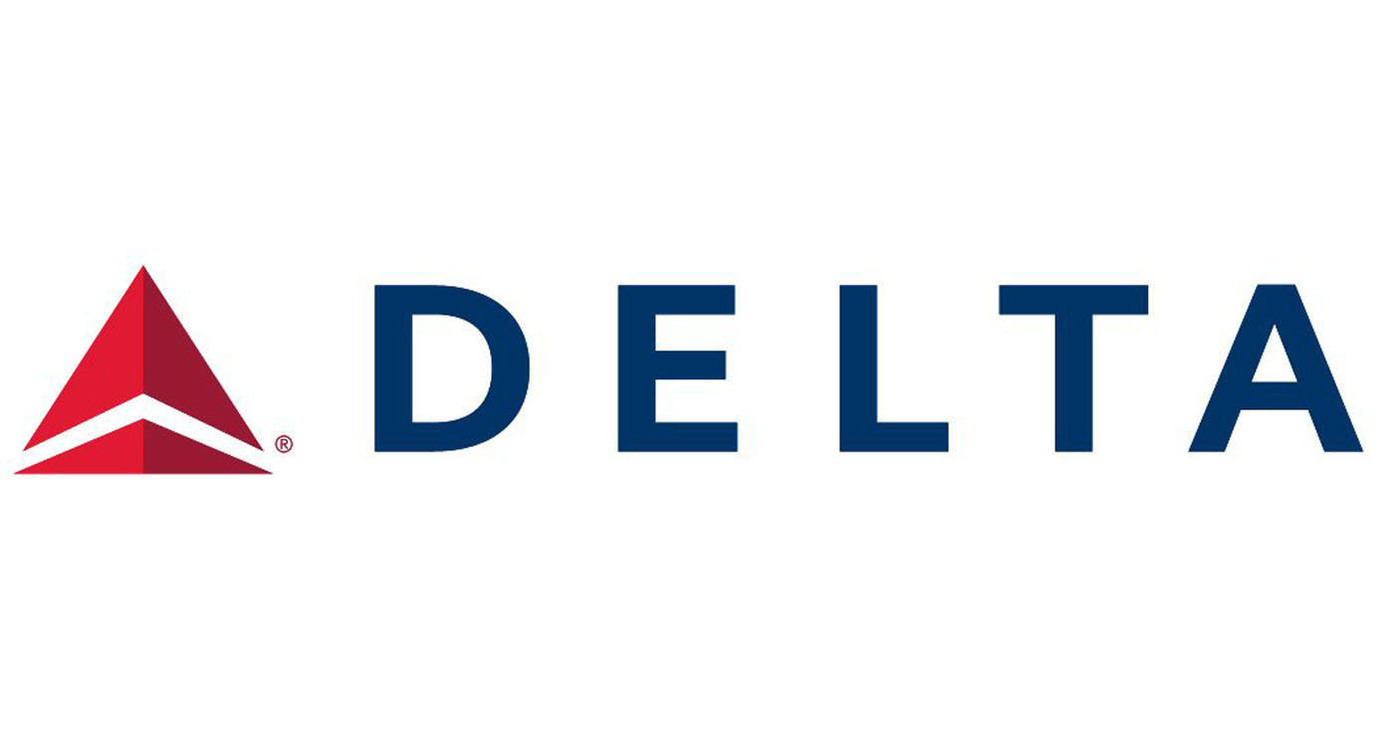
Delta Air Lines, Inc. (NYSE:DAL) Shows Positive Analyst Sentiment Ahead of Earnings
- Delta Air Lines, Inc.'s (NYSE:DAL) consensus price target has increased over the past year, indicating a positive outlook from analysts.
- Analyst Myles Walton from UBS has set a price target of $48, highlighting confidence in Delta's growth potential despite challenges.
- Delta's strategic focus on operational excellence and customer satisfaction positions it well to navigate inflationary pressures and potential declines in travel demand.
Delta Air Lines, Inc. (NYSE:DAL) is a major player in the airline industry, known for its extensive network and premium services. The company has a strong presence in the U.S. and international markets, competing with other giants like American Airlines and United Airlines. Delta's strategic focus on operational excellence and customer satisfaction has helped it maintain a competitive edge.
Over the past year, Delta's consensus price target has shown a positive trend. Last month, analysts set an average price target of $71, reflecting optimism about the company's future performance. This is an increase from the $68.86 target three months ago and $68.83 a year ago, indicating a steady improvement in analysts' outlook for Delta.
As Delta prepares to announce its third-quarter earnings, expectations are high for a strong performance. Analyst Myles Walton from UBS has set a price target of $48, suggesting confidence in Delta's growth potential. The airline's ability to manage costs effectively and capitalize on domestic demand is seen as crucial for its continued success.
Despite the positive sentiment, Delta faces challenges such as inflationary pressures and potential declines in travel demand. However, the company's history of exceeding revenue forecasts and its strategic initiatives, like fleet modernization and global partnerships, position it well to navigate these hurdles.
Investors are closely watching Delta's upcoming earnings release, as it will provide insights into the company's financial health and future prospects. With a strong track record and a positive outlook from analysts, Delta remains a stock to watch in the airline industry.
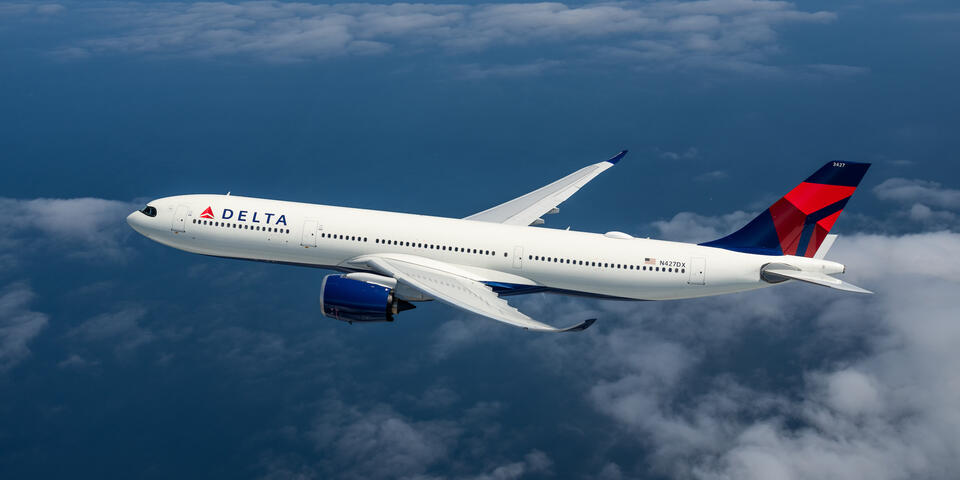
Delta Air Lines' Financial Performance and Market Valuation Ahead of Earnings Release
Delta Air Lines, trading as NYSE:DAL, is a major player in the airline industry, known for its extensive domestic and international flight network. As it prepares to release its quarterly earnings on October 9, 2025, analysts are keenly observing the company's financial performance. The expected earnings per share (EPS) is $1.56, with projected revenue of approximately $15.94 billion.
Despite a recent dip from its peak in early September, Delta's stock has shown resilience, maintaining a 47.2% increase over the past six months. The $56 level is emerging as a crucial support floor, potentially stabilizing the stock. Historically, Delta's stock has demonstrated a bullish trend, with a 69% chance of rising one month after similar instances, averaging a 5.6% gain.
Delta's consistent performance in surpassing earnings estimates positions it favorably for another potential earnings beat. In the last two quarters, Delta exceeded expectations by an average of 8.97%. For instance, in the most recent quarter, the airline reported earnings of $2.04 per share against an anticipated $2.10, marking a 2.94% surprise.
The company's financial metrics provide insight into its market valuation. Delta's price-to-earnings (P/E) ratio is approximately 8.23, while its price-to-sales ratio stands at about 0.60. The enterprise value to sales ratio is around 0.89, and the enterprise value to operating cash flow ratio is approximately 7.46. These figures reflect Delta's valuation relative to its earnings, sales, and cash flow.
Delta's debt-to-equity ratio is approximately 1.22, indicating its reliance on debt financing. The current ratio is around 0.38, highlighting its ability to cover short-term liabilities. With an earnings yield of about 12.14%, Delta offers a substantial return on investment from its earnings, making it an attractive option for investors.
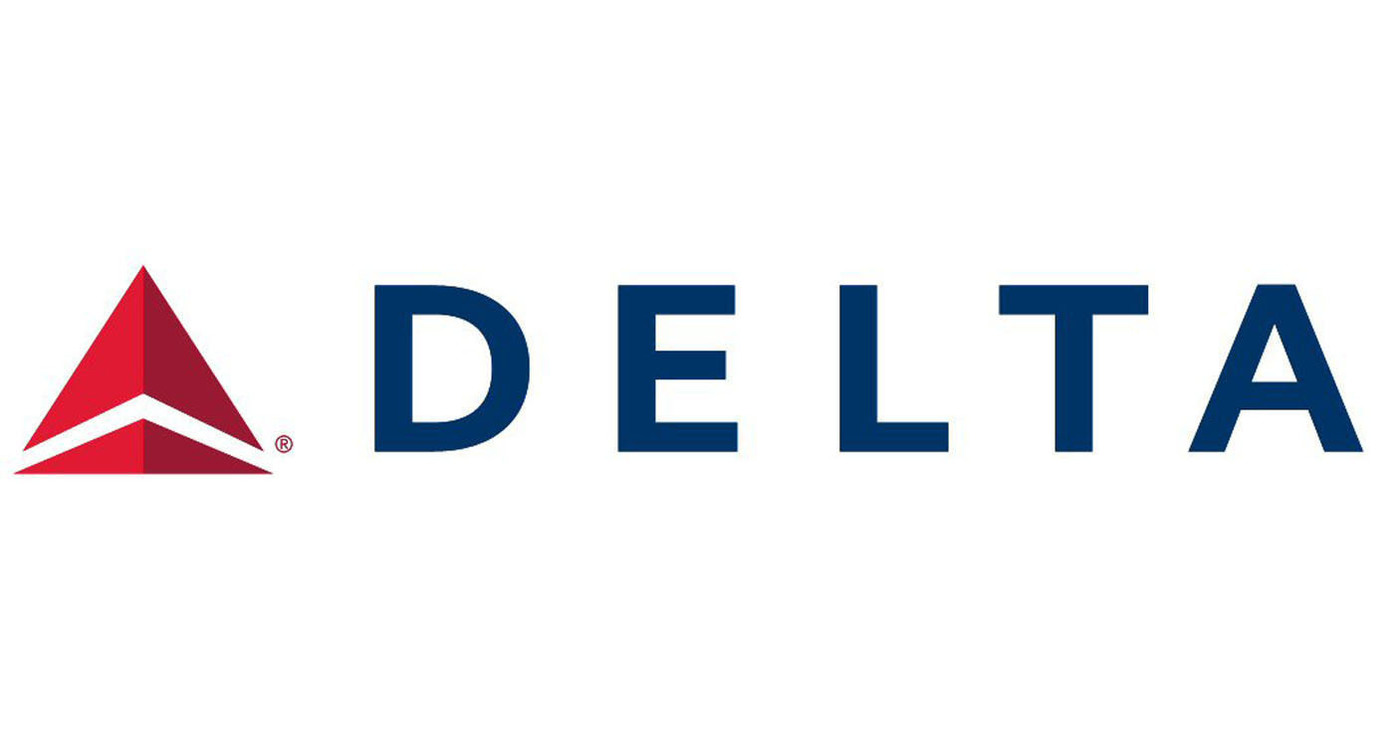
Delta Air Lines, Inc. (NYSE:DAL) Investment Activities Highlight Confidence and Market Dynamics
- Dave McCormick's significant transaction in Delta's corporate bonds valued between $250,001 and $500,000 suggests confidence in the company's financial stability.
- Peter Carter, Delta's Executive Vice President of External Affairs, sold 17,550 shares valued at approximately $1 million, yet maintains a significant ownership stake.
- Delta's stock price reflects market volatility with a current trading price of $51.15, indicating a decrease of approximately 3.87%.
Delta Air Lines, Inc. (NYSE:DAL) is a major American airline, providing air transportation for passengers and cargo across the globe. As one of the largest airlines in the world, Delta competes with other major carriers like American Airlines and United Airlines. The company is known for its extensive network, customer service, and operational efficiency.
On July 30, 2025, Dave McCormick engaged in a significant transaction involving Delta's corporate bonds, valued between $250,001 and $500,000. This transaction was disclosed on August 2, 2025. Corporate bonds are debt securities issued by a company to raise capital, and they typically offer fixed interest payments to investors. This transaction indicates McCormick's interest in Delta's debt instruments, which can be a sign of confidence in the company's financial stability.
In a related development, Peter Carter, Delta's Executive Vice President of External Affairs, sold 17,550 shares of the company on July 16, 2025. This sale was valued at approximately $1 million and conducted in an open market setting. The sale aligns with Carter's recent trading patterns, as his median trade size is around 17,747 shares. Despite this sale, Carter still holds 191,442 shares, valued at $10.8 million, maintaining a 0.03% ownership stake in the company.
Delta's stock is currently trading at $51.15 on the NYSE, reflecting a decrease of approximately 3.87% with a price drop of $2.06. The stock has fluctuated between a low of $50.45 and a high of $51.93 during the day. Over the past year, Delta's stock has seen a high of $69.98 and a low of $34.74, indicating significant volatility. The company's market capitalization stands at approximately $33.4 billion, with a trading volume of 9,531,575 shares for the day.
The sale of shares by Carter and the bond transaction by McCormick highlight different aspects of investment in Delta. While Carter's sale slightly reduces his ownership stake, McCormick's bond transaction suggests confidence in Delta's financial health. These activities occur against the backdrop of Delta's fluctuating stock price and market conditions, reflecting the dynamic nature of the airline industry.
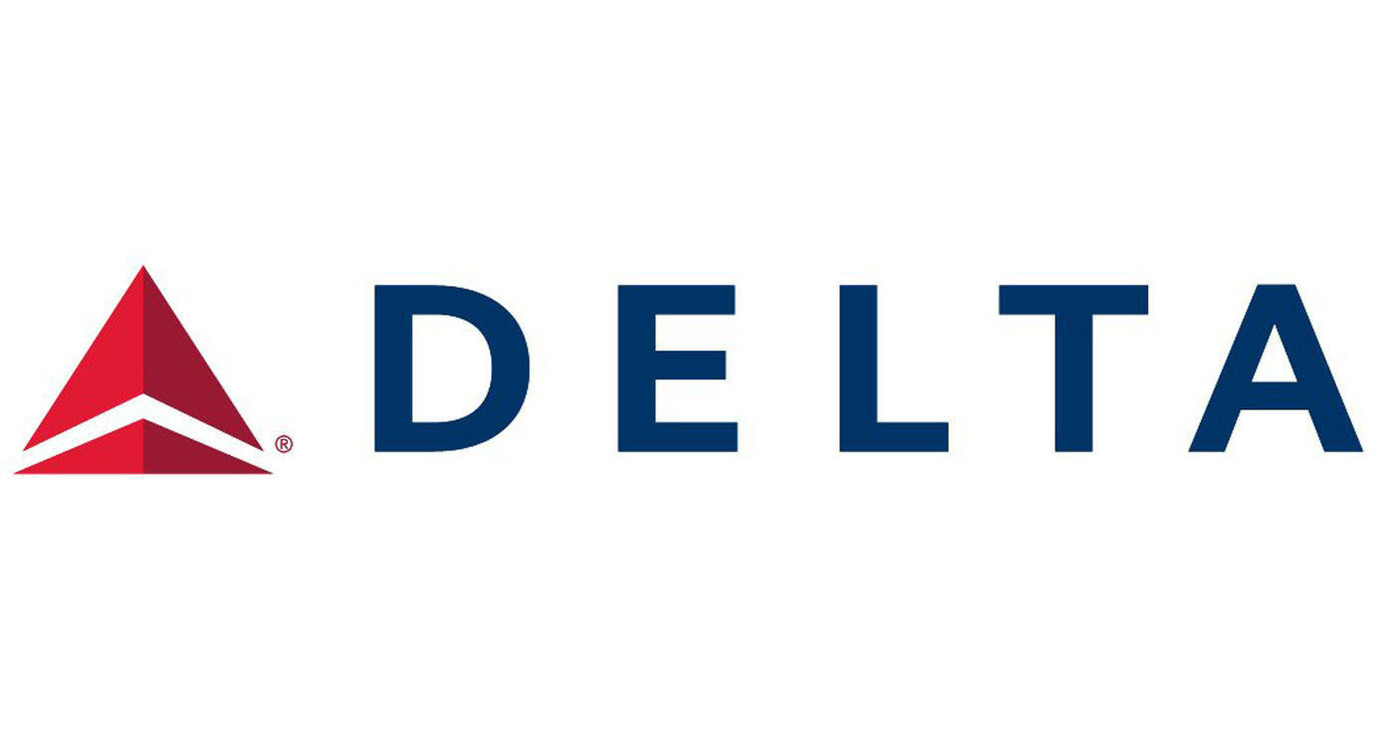
Delta Air Lines, Inc. (NYSE:DAL) Analysts Adjust Price Targets Amid Industry Challenges
- Analysts have lowered Delta Air Lines, Inc.'s (NYSE:DAL) consensus price target over the past year, indicating a more conservative outlook.
- Delta revised its 2025 profit outlook downwards, expecting adjusted earnings between $5.25 and $6.25 per share, impacting analysts' views.
- Macroeconomic factors and industry challenges, such as fluctuating fuel prices and changes in travel demand, contribute to the cautious price targets set by analysts.
Delta Air Lines, Inc. (NYSE:DAL) is a major player in the airline industry, providing air transportation services for passengers and cargo. The company operates a vast network of routes, serving domestic and international destinations. Delta competes with other major airlines like American Airlines and United Airlines. Recently, analysts have adjusted their price targets for Delta's stock, reflecting a more cautious outlook.
Over the past year, Delta's consensus price target has decreased. Last month, the average price target was $60, down from $63 last quarter and $67.21 last year. This trend suggests analysts are becoming more conservative in their expectations for Delta's stock. Factors such as earnings reports and industry trends likely contribute to this shift.
Delta's recent earnings reports have played a significant role in shaping analysts' views. The company revised its 2025 profit outlook, now expecting adjusted earnings between $5.25 and $6.25 per share, down from a previous forecast of over $7.35 per share. Despite this adjustment, Delta's CEO has indicated that demand has stabilized, as highlighted by CNBC.
Industry challenges, such as fluctuating fuel prices and changes in travel demand, also impact analysts' projections. Delta's financial results for the June quarter of 2025 align with earlier guidance, showing robust performance across diverse revenue streams. The company anticipates earnings per share for the September quarter to range between $1.25 and $1.75, with an operating margin of 9 to 11 percent, as reported by PR Newswire.
Macroeconomic factors, including interest rates and consumer spending, further influence Delta's stock price targets. Analyst Myles Walton from UBS has set a price target of $48 for Delta, reflecting a cautious stance amid potential industry headwinds. As Delta prepares to release its second-quarter earnings, investors and analysts are keen to see if the airline can maintain its earnings momentum.







